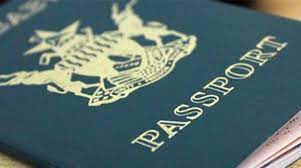The family of the late Elvis Nyathi has appealed to the Zimbabwean government to reduce passport fees as most citizens were struggling to obtain them.
This plea from the Nyathi family is a stark reminder that some Zimbabwean nationals struggle to access documentation when out of the country due to certain factors including bureaucratic and financial challenges.
Originally from Bhewula, Sewula Village Kezi in Matopo South under Chief Malaba of Matabeleland South, Nyathi was beaten and burnt to death on April 6 by an anti-immigrant mob in Diepsloot, north of Johannesburg, under Operation Dudula targeting foreigners.
His family said Nyathi was killed after he failed to produce a passport.
“Elvis and his wife hid behind their shack when they heard a mob going around wanting to see IDs and passports. After they were seen hiding, Elvis on seeing the angry crowd, ran away because they were armed. They chased him, caught up with him and beat him up with weapons,” narrated his elder brother Godknows Nyathi, at his funeral service held Saturday at the Brethren in Christ Church, New Lobengula.
“They said since you are running away you have a gun and searched his room but couldn’t find anything. They asked for his wife’s passport and told her to give them R300 to release him. They didn’t have the money so they took Elvis, beat him up and burnt him on the street.”
Nyathi’s cousin, Mphathisi Ndlovu, called on the government to make it easier for Zimbabwean nationals to apply for passports while outside the country.
“Elvis died for not having a passport. A Zimbabwean passport is expensive,” he said while addressing mourners.
“We know some may say the one that costs a lot of money is the emergency passport but there is talk, which always causes alarm among those outside the country that we must apply for emergency passports as it comes out faster. The emergency passport when in South Africa cost R5 000, which is money that we don’t even earn.”
“How was Elvis going to afford the R5 000 from his gardener’s salary? The R300 that his killers demanded from his wife is same amount one needs to buy for the passport form.”
Ndlovu claimed people always urged each other not to apply for the ordinary passport, as it takes ages for it to come out.
“There is also a possibility that it will not come out, which forces us to borrow money to apply for the costly emergency passport,” he said but lamented that as soon as one produced a Zimbabwean passport outside the country, their value as a human was reduced.
“Wherever you produce it, your value is reduced immediately. If you are going for a job interview and that job was paying R7 000, the pay would be reduced to R3000.”
Ndlovu urged the Zimbabwean government to fix the economy and provide opportunities for locals.
“Our economy has no power but we must not suffer even outside the country yet we would be trying to make means since we would have failed here in the country. Please look into the issue of passports,” he said.
The government has since introduced Electronic-passport which costs US$120 while an emergency one costs US$220.
At one time the passport fee was pegged at US$318.
Meanwhile, the Nyathi family expressed gratitude to Zimbabweans who comforted them in their difficult time, saying condolences came from every part of the country and including the Diaspora.
“We thank the whole of Zimbabwe for showing support, despite differences in the languages we speak, Zimbabweans showed us immense support. They showed us that they can unite and speak one language. This is one of the occasions where I have witnessed Zimbabweans coming together for one cause. Our wish is may thus unity last going forward,” Ndlovu said.
“As the Nyathi and Ndlovu family we are traumatised by the way Elvis died. We will try to move on but we will not forget. No person deserves to die the way he was killed. We hope his killers would be punished. He was a hard worker working for his family, he was a jovial person who loved peace and quiet.”
Ndlovu also said people throughout their journey from South Africa un until Bulawayo would stop and express their sympathies.
“At the border, we were welcomed by well-wishers who bought us food. Along the way, people were stopping us passing their condolences. This showed us that Elvis’ death touched the hearts of many. We stopped in Esigodini for a small service and received donations from the people, stopped at NUST and here in Bulawayo, we saw your tremendous support. This really touched us as a family. God will thank you on our behalf,” he noted.
Nyathi was born on February 14, 1979, at Brunapeg Hospital to parents Mfanyana Nyathi and Sipho Ndlovu.
He grew up at Tshatshe, Sewula in kezi, where his primary was done at Sewula Primary.
His family moved to Insuza and in 2006 he left for South Africa, where he was a gardener until death.
In South Africa, he lived in Diesploot Extension One.
Nyathi was currently building his own home in Ntabazinduna.
He leaves behind his wife Nomsa Tshuma and four children.

